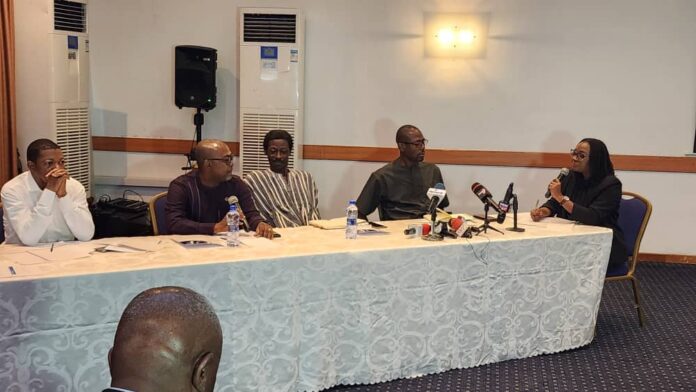Author: Beyonce Diamond Kpogli
The Center for Democratic Development (CDD) Ghana held a public engagement to unveil the maiden edition of the Ghana Cities Monitor (GCM) report.
The report, which underline the quality of life of Ghanaians, focuses on 23 metropolises and 20 municipalities in the Greater Accra, Ashanti, and Northern Regions.
The GCM report funded by the Hewlett Foundation aimed to strengthen evidence, inform decision-making in urban planning and encourage greater accountability.
Presenting the findings of the report at the launch in Accra on Wednesday, 2nd August 2023, Mr. Gilfred Asiamah, Research Analyst at CDD said the GCM found the need for government to stimulate socio-economic development and transformation across various urban areas to improve upon the standard of living of citizens.
He noted that “this report has exposed the wide gap between individuals living in Accra and those living in the Northern Region which is very critical.”
“The low quality of life in the Northern Region is a contributory factor to the reasons why many migrate from that area to Accra, putting so much burden on the already limited resources in the capital of the country,” he added.
He called on policymakers to ensure urban spaces are well governed, adding that the public must also be interested in holding city authorities accountable when it comes to issues of critical concern.
He, therefore urged the media and Civil Society Organisations (CSOs) to focus on discussing issues peculiar to the quality of life of people living in spaces where they could not have access to essential services.
In her remarks, Director of Research, CDD Ghana, Dr. Edem Selormey said the data provided by the research is a roadmap toward resolving some of the challenges facing some metropolis in Accra.
“The GCM stands as a powerful tool, empowering evidence-driven decision-making and augmenting public participation in the governance of our cities.”
“It calls for collective action and a reminder of our shared responsibility to build a prosperous and inclusive Ghana for future generations” she added.
The 2021 National Population and Housing Census, she said, revealed that urbanization had rapidly transformed the landscape of Ghana, with close to 60 percent of the population now residing in cities.








































